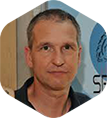Event advisory boards
The members of the Innovation and Entrepreneurship Event Advisory Board and the Scientific Event Advisory Board for The Brain Forum 2016 came from a variety of backgrounds to advance our vision and help us take the next step on an exciting journey.
Innovation and Entrepreneurship Event Advisory Board
Co-chairs

Prof. Patrick Aebischer
President Emeritus, EPFL, Switzerland
Prof. Patrick Aebischer

Prof. Patrick Aebischer was trained as an MD (1980) and a neuroscientist (1983) at the University of Geneva and Fribourg in Switzerland. From 1984 to 1992, he worked at Brown University, USA as an Assistant Professor and then Associate Professor of Medical Sciences. In 1991, he became the Chairman of the Section of Artificial Organs, Biomaterials and Cellular Technology of the Division of Biology and Medicine of Brown University. In the fall of 1992, he returned to Switzerland as a Professor and Director of the Surgical Research Division and Gene Therapy Center at the Centre Hospitalier Universitaire Vaudois (CHUV) in Lausanne. In 1999, Prof. Aebischer was nominated as President of EPFL by the Swiss Federal Council. He took office as President on March, 2000 and since January 2004, he is a member of the ETH Board.
His current research focuses on the development of cell and gene transfer approaches for the treatment of neurodegenerative diseases. Prof. Aebischer is a member of numerous professional societies, both in Europe and the USA. He is a fellow of the American Institute for Medical and Biological Engineering and a fellow of the Swiss Academy of Medicine. Prof. Aebischer is also a founder of two biotechnology companies: CytoTherapeutics (today Stem Cell Inc) and Modex Therapeutics (today IsoTis).

Dr. Jamil El-Imad
CEO, The Brain Forum, Switzerland
Dr. Jamil El-Imad

Dr. Jamil El-Imad is an Honorary Senior Research Fellow at the Institute of Biomedical Engineering at Imperial College London, a Fellow at the Institution of Engineering and Technology London, as well as the Managing Director and Chief Scientist of NeuroPro - a Swiss-based medical technology research, design and commercialisation company focused on bringing innovative, safe and low-cost solutions for applied neural signal analysis to the research and healthcare community.
Members

Dr. Hervé Lebret
Manager of Innogrants, EPFL, Switzerland
Dr. Hervé Lebret

Dr. Hervé Lebret is a senior scientist in high-tech entrepreneurship at EPFL (Lausanne), where he also manages the Innogrants, a program supporting startup creation. Until 2004, he was with Index Ventures, a pan-European venture capital firm which invested in Skype, mysql, Virata, Genmab. He began his career as a researcher in electrical engineering and applied mathematics at ENSTA and ONERA (Paris). He is the author of the book "Start-Up, what we may still learn from Silicon Valley" and related blog www.startup-book.com. Dr. Lebret is a graduate of Ecole Polytechnique and Stanford University. He holds a PhD in electrical engineering from Université de Rennes.

Mr. Alain Nicod
Partner, VI Partners AG, Switzerland
Mr. Alain Nicod

Mr. Alain Nicod is Partner at VI Partners AG, Switzerland since 2002. His area of expertise is information technology and with his entrepreneurial background he supports other portfolio companies with challenging decisions. Between 1989 and 2002 he was a founder and investor in the medical technology (compex) and information technology industry (smart-telecom.ch, sourcingparts.com, mnc.ch, leshop.ch, Securicard, etc.). He is also a board member at two Swiss banks.
Prior to his entrepreneurial career, he advised telecommunications providers, for example regarding mergers and acquisitions. After studying at HEC in Lausanne and receiving an MBA from INSEAD, he began his consulting career at Arthur Andersen and McKinsey.
He is fluent in English, French, German and Spanish.

Dr. Andrea Pfeifer
Co-founder and CEO, AC Immune, Switzerland
Dr. Andrea Pfeifer

Prof. Andrea Pfeifer co-founded AC Immune in 2003 and, since then, holds the position of CEO. Prior to AC Immune she was head of Nestlé’s Global Research in Lausanne, Switzerland and manages a group of more than 600 people. While at Nestlé, she led the scientific development of the first Functional Food, LC1, and one of the first Cosmoceutical products in a joint venture with L’Oreal, Innéov Fermeté. She also co-founded the Nestlé Venture Capital Fund, 1 Euro 1000M Life Science corporate venture fund.
She serves as chairwoman of the Biotechmedinvest AG Investment Fund, Basel and AB2Bio, Lausanne and is member of the Supervisory Board of Symrise AG, Holzminden. Prof. Pfeifer is a member of the CEOi Initiative on Alzheimer’s Disease. She was recognized in 2009 as Technology Pioneer by the WEF and Swiss Entrepreneur of the Year by Ernst&Young. Additional recognition include the BioAlps prize 2013, the election as one of the 10 women in biotech from Fierce Biotech ad one of the 300 most influential personalities in Switzerland.
Prof. Pfeifer holds PhD in Toxicology, Cancer Research from University of Würzburg, Germany and continued with post-doctoral work in Molecular Carcinogenesis at the National Institutes of Health, Human Carcinogenesis Branch, in Bethseda, USA. She is a registered Toxicologist and Pharmacist, received her habilitation from the University of Lausanne Switzerland and is an honorary professor at the EPFL, Switzerland. She has published more than 200 papers and abstracts in leading scientific journals.
Scientific Event Advisory Board
Chair

Prof. Carmen Sandi
Director, Brain Mind Institute, EPFL, Switzerland
Prof. Carmen Sandi

Prof. Carmen Sandi is a Professor at the Brain Mind Institute, EPFL Lausanne, where she is the Director of the Laboratory of Behavioural Genetics. She works on the interplay between genes, brain function and behaviour, and her work focuses on the impact of stress on cognitive function and psychopathology, as well as on the mechanisms implicated in stress actions. She has published over 95 research articles and is the editor or main co-author of 3 books. Her work at EPFL has linked stress with the mechanisms of aggression and with the establishment of social hierarchies. In this connection, she was the main organiser of the 2009 EPFL-Latsis Conference entitled 'Understanding violence: Recent advances in biology, sociology, and modeling'. She has obtained major funding from national (Swiss National Science Foundation) and international (FP5, FP6 and FP7 European Programs) agencies and is currently coordinator of an EU FP7 project (MemStick) on Health. Prof. Sandi has served on several boards of scientific societies, currently acting as council member for the Swiss Society for Neuroscience and as President-elect for European Brain and Behavior Society (EBBS). She serves in several editorial boards and is Editor-in-Chief of the journal Frontiers in Behavioral Neuroscience.
Members

Prof. Patrick Aebischer
President Emeritus, EPFL, Switzerland
Prof. Patrick Aebischer

Prof. Patrick Aebischer was trained as an MD (1980) and a neuroscientist (1983) at the University of Geneva and Fribourg in Switzerland. From 1984 to 1992, he worked at Brown University, USA as an Assistant Professor and then Associate Professor of Medical Sciences. In 1991, he became the Chairman of the Section of Artificial Organs, Biomaterials and Cellular Technology of the Division of Biology and Medicine of Brown University. In the fall of 1992, he returned to Switzerland as a Professor and Director of the Surgical Research Division and Gene Therapy Center at the Centre Hospitalier Universitaire Vaudois (CHUV) in Lausanne. In 1999, Prof. Aebischer was nominated as President of EPFL by the Swiss Federal Council. He took office as President on March, 2000 and since January 2004, he is a member of the ETH Board.
His current research focuses on the development of cell and gene transfer approaches for the treatment of neurodegenerative diseases. Prof. Aebischer is a member of numerous professional societies, both in Europe and the USA. He is a fellow of the American Institute for Medical and Biological Engineering and a fellow of the Swiss Academy of Medicine. Prof. Aebischer is also a founder of two biotechnology companies: CytoTherapeutics (today Stem Cell Inc) and Modex Therapeutics (today IsoTis).

Prof. Claudia Bagni
Chair, Department of Fundamental Neuroscience, University of Lausanne, Switzerland
Prof. Claudia Bagni

Prof. Claudia Bagni is the Chair of the Department of Fundamental Neuroscience at the University of Lausanne, Switzerland and Professor at the University of Rome Tor Vergata, Italy. Prof. Bagni’s work focuses on the understanding of brain development in physiological and specific neurological conditions as Fragile X Syndrome (FXS), Autism Spectrum Disorders (ASDs) and Schizophrenia (SCZ). She has published seminal work on the molecular basis of synaptic dysfunctions in Fragile X and ASD in which the recurring aspect is the dysregulation of the synaptic proteome.
To address the cellular, molecular and behavioral basis of these neurodevelopmental disorders her team uses rodents, patients’ cell lines and recently the fruit fly Drosophila melanogaster. FXS, ASD and SCZ are still without an effective cure. Prof. Bagni aims with the use of biological models and in collaboration with clinical researchers and pharma, to develop possible pharmacological approaches to modulate some aspects of these synaptopathies.
Prof. Bagni serves as a Board member of international organizations including the European Research Council, European Molecular Biology Organization (EMBO), Leibniz Institute for Neurobiology. Prof. Bagni has received several awards, under the patronage of the Queen Elisabeth Foundation Belgium she was awarded of the Baron van Gysel de Meise Price, the Union Chimique Belge Award and the Solvay Price. She is an honorary Member of the Italian Fragile X Association. In 2011 she was elected EMBO Member.

Prof. Olaf Blanke
Director, Center for Neuroprosthetics, EPFL, Switzerland
Prof. Olaf Blanke

Prof. Olaf Blanke is the founding Director of the Center for Neuroprosthetics, Bertarelli Foundation Chair in Cognitive Neuroprosthetics at EPFL, Switzerland. He also directs the Laboratory of Cognitive Neuroscience at EPFL and is Professor of Neurology at the Department of Neurology, University Hospital of Geneva, Switzerland. Prof. Blanke's research is dedicated to the neuroscientific study of multisensory body perception and its relevance for self-consciousness by using a broad range of methods such as invasive and non-invasive electrophysiology, brain imaging in healthy subjects, and neurological and psychiatric patients. Most recently he has pioneered the joint use of engineering techniques such as robotics and virtual reality with techniques from cognitive neuroscience and their application to systems and cognitive neuroprosthetics and neuro-rehabilitation.

Prof. Kim Do
Director, Center for Psychiatric Neuroscience, CHUV, Switzerland
Prof. Kim Do

Prof. Kim Do started a career in basic research in chemistry, molecular biology and neurobiology (glutatmate and nitric oxide transmission, neuro-glial interaction) at the Brain Research Institute (Zurich University, Switzerland). Thereafter, Prof. Do moved towards "bench to bed" research at the Center for Psychiatric Neuroscience (Department of Psychiatry, Lausanne University Hospital, Switzerland). She set up a translational research program aimed at a better understanding of the causes and mechanisms leading to schizophrenia phenotypes in order to develop markers for early diagnosis, new drug targets as well as preventive and therapeutic measures.
Building on an innovative hypothesis, she could demonstrate that oxidative stress/redox dysregulation induced, among others, by glutathione (GSH) deficit, may represent a "hub" on which both genetic and environmental risk factors converge during neurodevelopment, leading to the impairment of neural connectivity and synchronization, and to cognitive deficits as observed in patients. These mechanisms have been comprehensively documented in experimental models.
Based on these relevant neurobiological data, a precursor of GSH, N-acetylcysteine (NAC), was administered to chronic patients. A double blind, placebo controlled add-on clinical trial with NAC showed a net improvement in negative symptoms, in auditory evoked potentials (mismatch negativity), neural synchronization, and produced no side effects. These promising results led a new clinical trial with young patients during their first psychotic episode, paving the way for early intervention targeted at high-risk subjects. Besides these clinical trials with NAC in chronic and early psychosis patients, her translational work has also inspired other “pre-emptive” interventions in high-risk individuals for psychosis such as “ESPRIT” (Enhancing Schizophrenia Prevention and Recovery through Innovative Treatments).
In addition to her research activities, Prof. Do serves as director of the Unit for Research in Schizophrenia and director of the Center for Psychiatric Neuroscience, where she also works on professional education and public outreach towards better care and cure of major psychiatric disorders.

Prof. John P. Donoghue
Director, Wyss Centre for Bio- and Neuro-Engineering, Switzerland
Prof. John P. Donoghue

Prof. John P. Donoghue is a neuroscientist known for his pioneering work in the field of human brain computer interfaces, as well as for research on brain function and plasticity.
He is the founding Director of the Wyss Center for Bio and Neuroengineering, based at Campus Biotech in Geneva, Switzerland.
He founded the Brown Institute of Brain Science at Brown University, Rhode Island, USA where he spent more than 30 years and where he maintains a professorship. He also holds an adjunct professorship at the EPFL and is a visiting professor at the University of Geneva in Switzerland.
Prof. Donoghue was a co-founder of an early neurotechnology startup company, Cyberkinetics.
He has spoken worldwide, including lectures at the World Economic Forum, the Vatican Pontifical Academy of Science and an Alfred Nobel Symposium.
His work has been widely featured in the media, including the New York Times, the Economist, the Financial Times, as well as US and international television.
In 2013 his BrainGate neurotechnology, that aims to restore movement for people with paralysis, was recognised by the first Israel B.R.A.I.N. (Breakthrough Research And Innovation in Neurotechnology) prize, as well as the German Zülch in 2007, the Roche-Nature Medicine 2010, and Schrödinger prizes 2012.
Prof. Donoghue is a Fellow of several academies including the US Institute of Medicine, the American Academy of Arts and Science, the American Institute for Medical and Biomedical Engineering, the American Association for the Advancement of Science and the Academy of Inventors. He was also a member of the National Institutes of Health Committee for The White House BRAIN Initiative.

Dr. Jamil El-Imad
CEO, The Brain Forum, Switzerland
Dr. Jamil El-Imad

Dr. Jamil El-Imad is an Honorary Senior Research Fellow at the Institute of Biomedical Engineering at Imperial College London, a Fellow at the Institution of Engineering and Technology London, as well as the Managing Director and Chief Scientist of NeuroPro - a Swiss-based medical technology research, design and commercialisation company focused on bringing innovative, safe and low-cost solutions for applied neural signal analysis to the research and healthcare community.

Prof. Christian Lüscher
Professor, University of Geneva, Switzerland
Prof. Christian Lüscher

Prof. Christian Lüscher is a professor of Neuroscience at the University of Geneva, Switzerland and an attending in Neurology at the University Hospital of Geneva.
He obtained his medical degree from the Universities of Lausanne and Berne. His M.D. thesis focused on the morphological contraints of axons that determine the safety factor of action potential propagation. After a residency in Neurology he spent three years at UC San Francisco to study synaptic plasticity in the lab of Roger Nicoll. With a career development award from the Swiss National Science Foundation, he established his lab at the University of Geneva in 1999 and became full professor in 2009.
The main interest of Prof. Lüscher lab is on the synaptic mechanisms that underlie the behavioural adaptations in drug addiction. Over the last 15 years his lab has characterised “drug-evoked synaptic plasticity” and established links of causalities with various components in addiction models. The lab was the first to show that normalising synaptic transmission in vivo with optogenetic approaches can erase pathological behaviour. The group is currently working towards translational protocols to emulate optogenetic protocols with methods of neuromodulation approved for human use such as deep brain stimulation.
Prof. Lüscher has received several prizes, including an ERC advanced grant, the Bing and the Cloëtta Prize.

Prof. Patrik Vuilleumier
Professor, University of Geneva, Switzerland
Prof. Patrik Vuilleumier

Prof. Patrik Vuilleumier is a neurologist who is using brain imaging techniques (such as functional resonance magnetic imaging, fMRI) to study the cerebral mechanisms of emotion and awareness. After first training in neuropsychology in Geneva and Lausanne, he pursued his research in cognitive neurosciences at the University of California in Davis (1997-1999), and then at University College London (1999-2002). Currently he is the group leader of the Laboratory for Behavioral Neurology and Imaging of Cognition at Geneva University Medical Center and Hospital. His research investigates neural circuits in the human brain enabling emotion signals to influence perception and guide behavior, as well as the effect of brain lesions on emotion processes and consciousness.
Keep in touch
Subscribe for the latest announcements and events from The Brain Forum.




